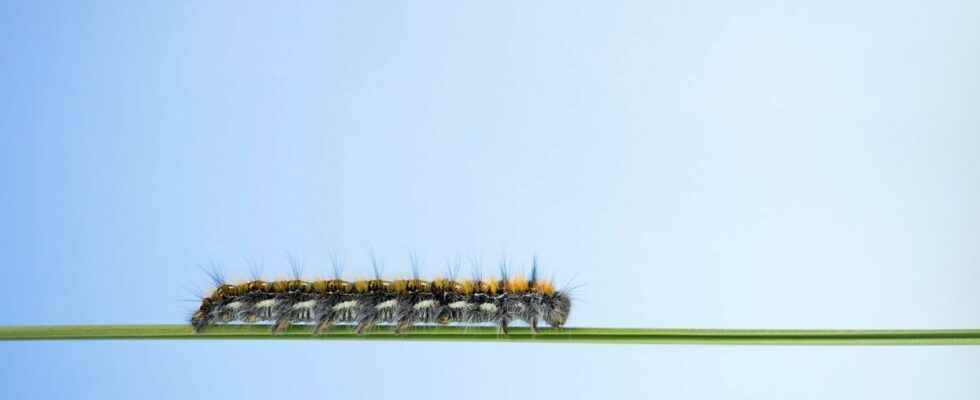Published on 05/03/2022 at 2:27 p.m.,
Reading 2 mins.
A new decree published on Wednesday April 27 recognizes the processionary caterpillar as a species harmful to human health.
Beware of these caterpillars with stinging hairs. In case of contact, processionary caterpillars can cause allergic or skin reactions. It is by observing the proliferation of the latter between 2012 and 2019 thata decree has been published on April 27 to add the oak processionary caterpillar and the pine caterpillar to the list of species whose “proliferation is harmful to human health”.
This decree would allow the prefects of the departments concerned by the high concentration of processionary caterpillars to warn the population and detail the measures to be taken. “At the local level, the prefect of the department determines by decree, after consulting the director general of the Regional Health Agency and the departmental council for the environment and health and technological risks and as necessary from any organization concerned, the measures to be taken to prevent the appearance of these species or to combat their proliferation”explains the site Life-public.fr.
Two different species of caterpillars
Pine and oak processionary caterpillars sting at different times. That of pine is stinging from December to April while that of oak is from May to July, indicates on his site the Regional Health Agency in Ile-de-France. It is also indicated that these two species are now found in 80% of the Ile-de-France region. It would seem that within 5 years the whole of Ile-de-France will be colonized.
To act quickly in the event of contact with these caterpillars, the ARS takes stock of the possible symptoms:
- painful rash with severe itching;
- development after 1 to 4 hours of conjunctivitis;
- sneezing, sore throat, difficulty swallowing or even difficulty breathing;
- hypersalivation, vomiting, abdominal pain
If you notice the appearance of at least one of these symptoms, consult a doctor quickly.
Protect yourself from processionary caterpillars
Processionary caterpillars are found in gardens or forests and move in Indian thread. We can then come across them during a walk or during a simple lunch in the garden. To guard against this, the National Food Safety Agency (ANSES) makes a few recommendations:
- “Do not approach or touch the caterpillars or their nest, especially for children;
- Stay away from trees with nests;
- Wear long clothes when walking in the forest or near infested trees;
- Avoid rubbing your eyes during or after a walk;
- Thoroughly wash the fruits and vegetables in your garden in the event of an infestation nearby;
- Avoid drying laundry next to infested trees;
- If caterpillar exposure is suspected, shower and change clothes;
- In the event of life-threatening signs (respiratory distress, etc.), call 15 or consult the emergency room;
- In case of signs of intoxication, consult a doctor or call the poison control center;
- If contact with the caterpillar, photograph the caterpillar to facilitate its identification;
- If pets are affected, consult a veterinarian or call a veterinary poison control center (Western Animal and Environmental Poison Center and National Center for Veterinary Toxicological Information).”
